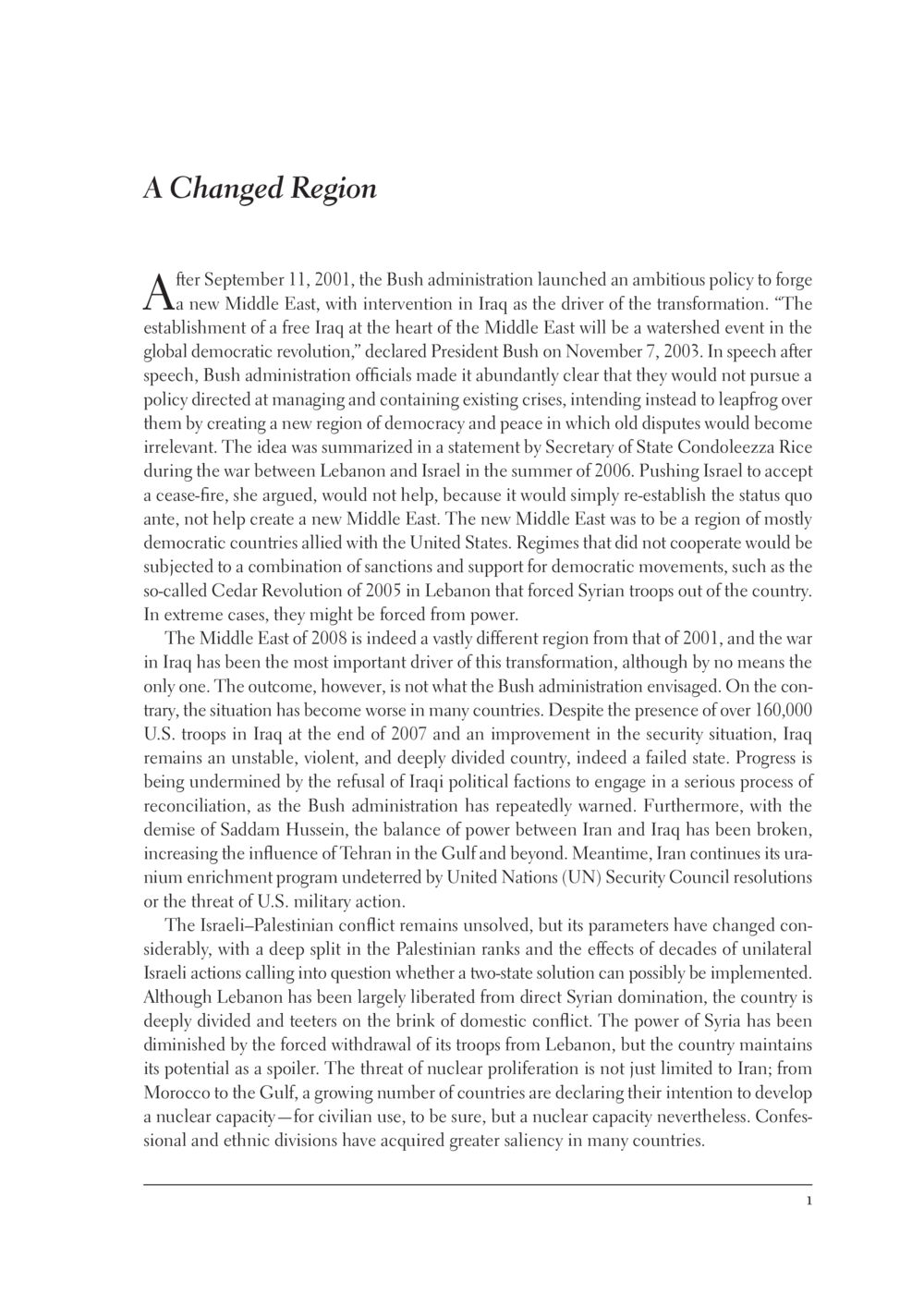A Changed Region: The Transformation of the Middle East Post 9/11 : หน้า 7/52
The New Middle East : หน้า 7/52 Exploring the significant shifts in the Middle East post-9/11, driven by the Bush administration's policies and the Iraq war's impact.
0 ครั้ง

สรุปเนื้อหา
This analysis reflects on the changes in the Middle East following the events of September 11, 2001, highlighting the ambitious policies of the Bush administration aimed at establishing democracy and peace through intervention in Iraq. President Bush articulated a vision of a new democratic Middle East, but the actual outcomes have largely diverged from these goals, leading to increased instability in countries like Iraq, which, despite U.S. troop presence, remains a divided and violent state. The power dynamics have shifted, particularly with Iran's rising influence in the region and its ongoing nuclear ambitions, further complicating the security landscape. Additionally, the long-standing Israeli-Palestinian conflict has evolved, marked by significant internal divisions among Palestinians and the implications of unilateral Israeli actions. The summary underscores that while some regimes faced challenges, including Syria's diminished role after its withdrawal from Lebanon, the threat of nuclear proliferation and ethnic conflicts has emerged as critical issues. A nuanced understanding of these complexities is essential for assessing the region's future.
หัวข้อประเด็น
- U.S. foreign policy post-9/11
- Impact of the Iraq War
- Middle East democratic aspirations
- Power shifts in Iran and Iraq
- Israeli-Palestinian conflict developments
- Nuclear proliferation in the region
- Ethnic and confessional divisions




















































